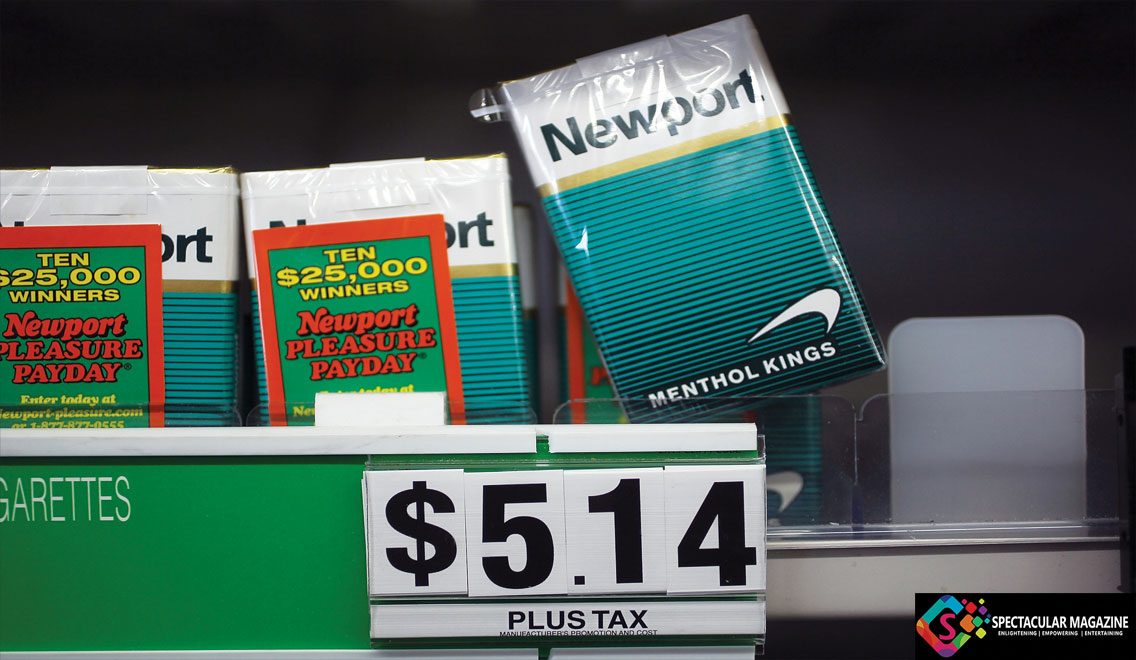[OPINION] Black Communities Suffer Without A Ban On Menthol Cigarettes
(NAACP) On Nov. 15, the U.S. Food and Drug Administration (FDA) announced a bold proposal to ban the sale of menthol cigarettes and restrict the sale of flavored electronic nicotine delivery systems, more commonly known as e-cigarettes. As an advocate for black health and public health, the NAACP commends this decision and acknowledges it is a step in the right direction.
For those who have recognized and pushed against the tobacco industry’s successful, targeted marketing of menthol cigarettes to African-Americans, the FDA’s recent stance is promising and long overdue. More than 88 percent of African-American smokers choose menthols, and tobacco use is a significant contributor to heart disease, cancer and stroke — the three leading causes of death among African-Americans. A ban on mentholated tobacco products is expected to alleviate the devastating effects of nicotine addiction on African-American health.
A closer look at menthol reveals the following:
- Menthol reduces the harshness of smoke because of its cooling effects on the mouth and throat, making it more appealing and easier to smoke.
- Types of mentholated tobacco-products include cigarettes, cigars, cigarillos, chewing tobacco, hookah, e-cigarettes and vapes.
- The tobacco industry intentionally markets to youths and African-Americans to keep current smokers addicted and attract new “replacement” smokers.
- There are 10 times more menthol advertisements and retail promotions in black communities than in other neighborhoods.
There is no shortage of research that shows the deleterious impact of menthol smoking and tobacco use on the human body, yet for decades the tobacco industry has pumped copious amounts of dollars into advertising to influence the most susceptible users — youths.
In fact, despite lower smoking rates among African-American adolescents compared with other racial and ethnic groups, studies show that African-American youths who do smoke use menthol cigarettes at a very high rate. About 70 percent of African-American middle and high school students who smoke use menthol cigarettes, compared with 51 percent of their white counterparts. And while 29 percent of white smokers ages 12 and up smoke menthol cigarettes, 85 percent of African-American smokers use these products.
What’s most alarming is that mentholated cigarettes have a much greater health risk than non-menthol cigarettes. According to a 2013 FDA report, menthol cigarettes increase smoking initiation among youths and young adults, increase smoking addiction, and decrease the chance of quitting smoking. Unfortunately, young people’s nicotine use is not slowing down. According to new findings from the 2018 National Youth Tobacco Survey, from 2017 to 2018, current e-cigarette use among high school students increased by 78 percent and use among middle school students rose 48 percent. This rise is attributable to the sleek, discreet look of these products, their high nicotine content and their youth-enticing flavors.
The growing use of e-cigarettes among youths raises serious concerns about early-age nicotine addiction, and the likelihood of these users transitioning to regular cigarettes and more African-American youths to menthol cigarettes.
Recognizing the impact of menthol smoking on African Americans and the rise in use of flavored e-cigarettes among black and other youths, the NAACP adopted a unanimous resolution at our 2016 National Convention supporting state and local policy efforts to restrict the sale of menthol cigarettes and other flavored tobacco products, as well as advocating for the FDA’s careful oversight and review of all tobacco products, including menthol cigarettes.
Since passing the resolution, we’ve launched the Youth Against Menthol campaign. Through this project, we are working with our Youth & College Division to educate, mobilize and activate young adults across the United States to take action against menthol consumption and Big Tobacco’s targeted marketing of African-Americans.
We support and appreciate the FDA’s proposal and will continue to advocate for optimal health for African-Americans and all Americans.
Dr. Marjorie Innocent is the NAACP’s senior director of health programs.

